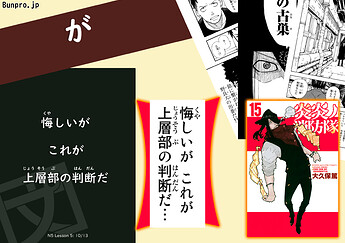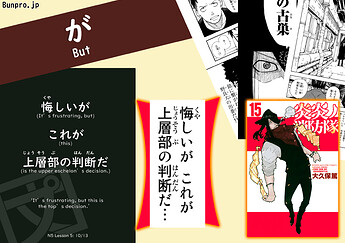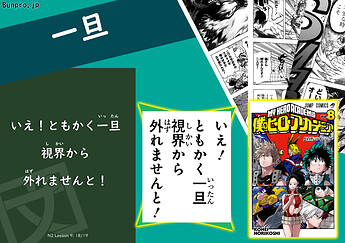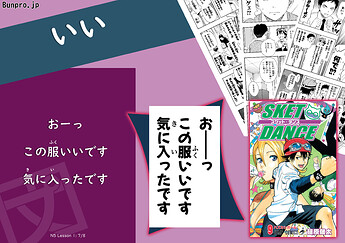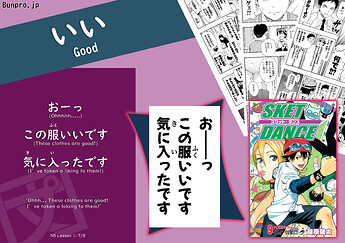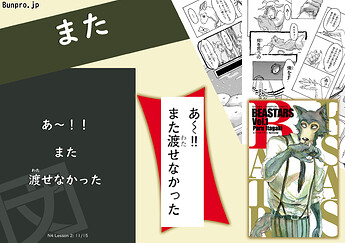guess
No! If only we can get out of his line of sight even once somehow!
I’m stretching some things around here. ともかく一旦 gives me the impression that the intent is to break line of sight which makes me more confident in the if/when interpretation of the final と. Lit. “somehow once from line of sight to (not) get out of (if/when).” However, I really don’t get what’s going on with the 外れません. Earlier today I was looking at a point that brought up weird things with negatives that were honestly over my head, but it gave me the idea to treat the conditionals + negatives as possibilities given the context.
Manga Context
Here’s a chapter summary: Chapter 64 | My Hero Academia Wiki | Fandom
tl;dr - kids fight a guy (the bandage user in the pic) who can negate superpowers of people he can see directly
Edit: I haven’t put in an effort to read manga in Japanese, but these posts have made them seem quite scary despite the lower word count.


